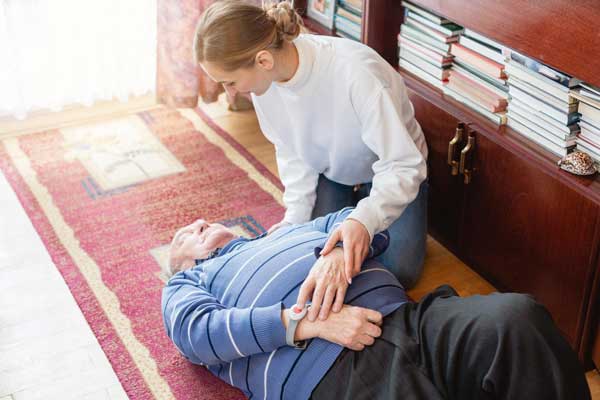In moments of crisis, encountering a person in need of urgent medical assistance can be both daunting and morally compelling. As a medical professional, you may find yourself wondering about the medico-legal implications of providing out-of-hospital care. What are your responsibilities? What legal protections do you have? In this article, we will explore these important questions and shed light on the legal framework surrounding out-of-hospital care.

Duty to Assist Laws: Exploring Legal Obligations
In most states, there is no legal obligation for individuals to provide assistance in situations requiring immediate medical attention. However, a handful of states have implemented duty to assist laws, which make it obligatory for bystanders to help strangers in need. It is essential to note that New York State is not among these states. Therefore, in New York, you are not legally bound to provide aid, and you can choose to continue driving or walk away. The only exception to this rule is a “half rescue,” where you initiate help but then abandon it, potentially endangering the individual further.
Good Samaritan Laws: Protection for Compassionate Acts
To encourage individuals to provide assistance in emergencies, most states, including New York, have enacted Good Samaritan laws. These laws protect medical professionals and laypeople who offer aid to strangers in need. If you engage in care with the best intentions and act in good faith, you are generally protected from lawsuits for negligence. However, it is crucial to be aware that intentional harm or reckless conduct can void this protection. Additionally, it’s important to note that Good Samaritan laws typically do not apply in a hospital setting or when you are the individual’s designated doctor.
Carrying Medical Equipment: Preparedness and Legal Considerations
After experiencing a situation where immediate medical assistance was required, you might contemplate carrying medical equipment in your vehicle. While carrying equipment that aligns with your expertise can be beneficial, it is essential to consider the legal implications. As a physician, it is within your rights to carry suitable medical equipment in case of emergencies. This preparedness can enhance your ability to provide effective care. However, it is important to exercise discretion and ensure that the equipment you carry is appropriate for the level of expertise you possess.
Recommendations for Providing Out-of-Hospital Care
When offering assistance as a physician in an out-of-hospital setting, there are several key recommendations to consider. Firstly, it is crucial to announce that you are a physician, as this helps deter non-medical individuals from intervening and establishes your credibility. Additionally, explain your specialty or expertise, as there may be other healthcare professionals present who are better suited to handle the specific situation. Finally, direct someone to seek further help by explicitly pointing out a specific person and instructing them to call 9-1-1 or alert emergency medical services. It is important to remember that until professional help arrives, you should avoid initiating a “half rescue” as it may discourage others from stepping in.
Legal Considerations at Altitude: Providing Care on Airplanes
While state laws may not provide specific protections for providing care on airplanes, it is crucial to understand the complex rules governing aviation. In situations where you render aid on a plane, two principles come into play. Firstly, legal technicalities become less relevant when your actions are reviewed by a jury or a medical board. The emphasis is placed on your good intentions and efforts to save a life. Secondly, aviation law incorporates the notion of “community standard.” This means that you will be judged based on what a reasonable physician with similar training and experience would have done in the same circumstances.
Conclusion
When it comes to providing out-of-hospital care as a medical professional, understanding the medico-legal implications is essential. Duty to assist laws, Good Samaritan laws, and carrying medical equipment all play significant roles in shaping the legal framework surrounding these situations. By familiarizing yourself with these laws and recommendations, you can navigate the complexities of out-of-hospital care while ensuring both the well-being of those in need and your own legal protection. Remember, in emergencies, acting promptly and in good faith can save lives and make a profound difference in the world.
